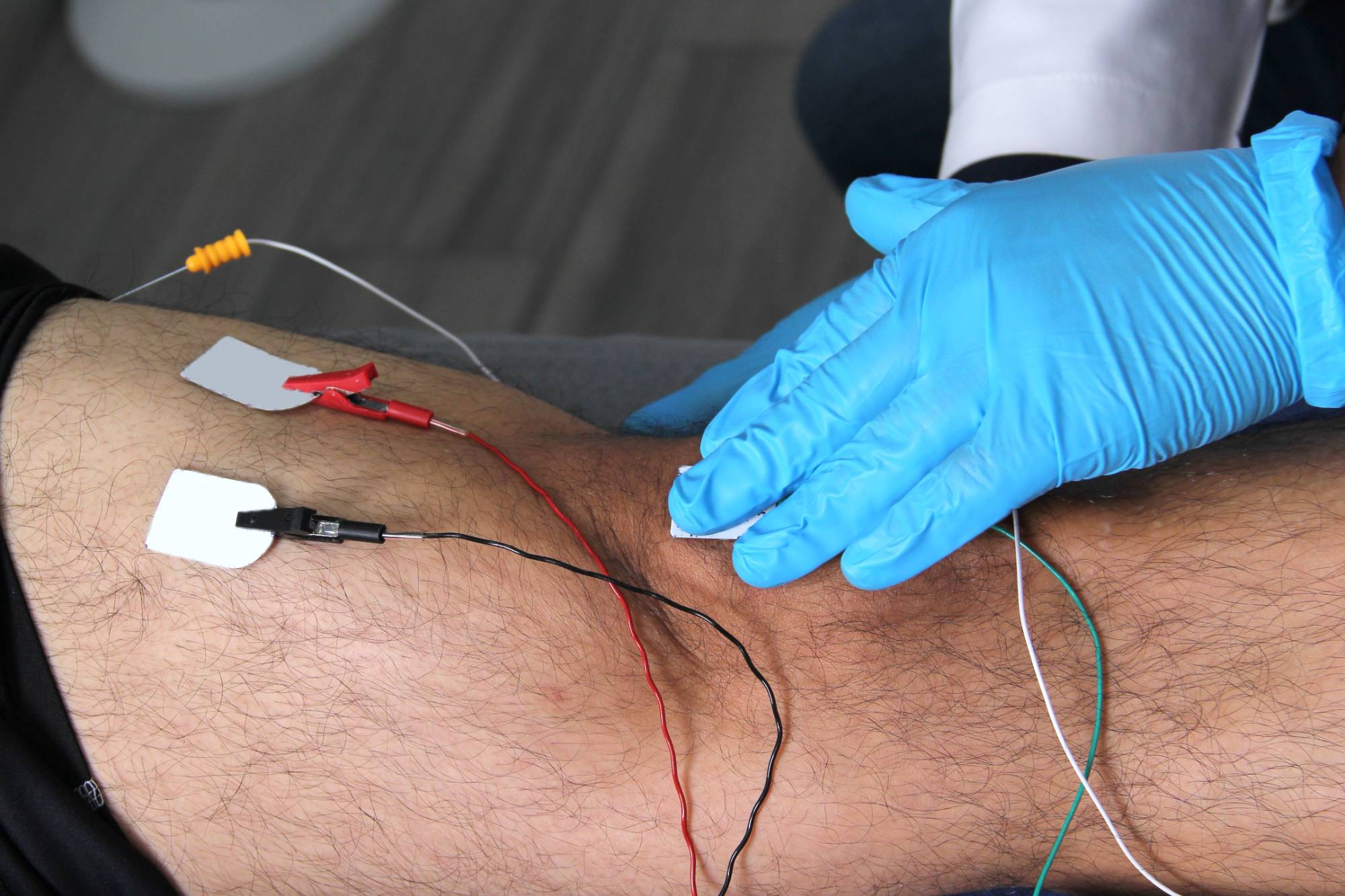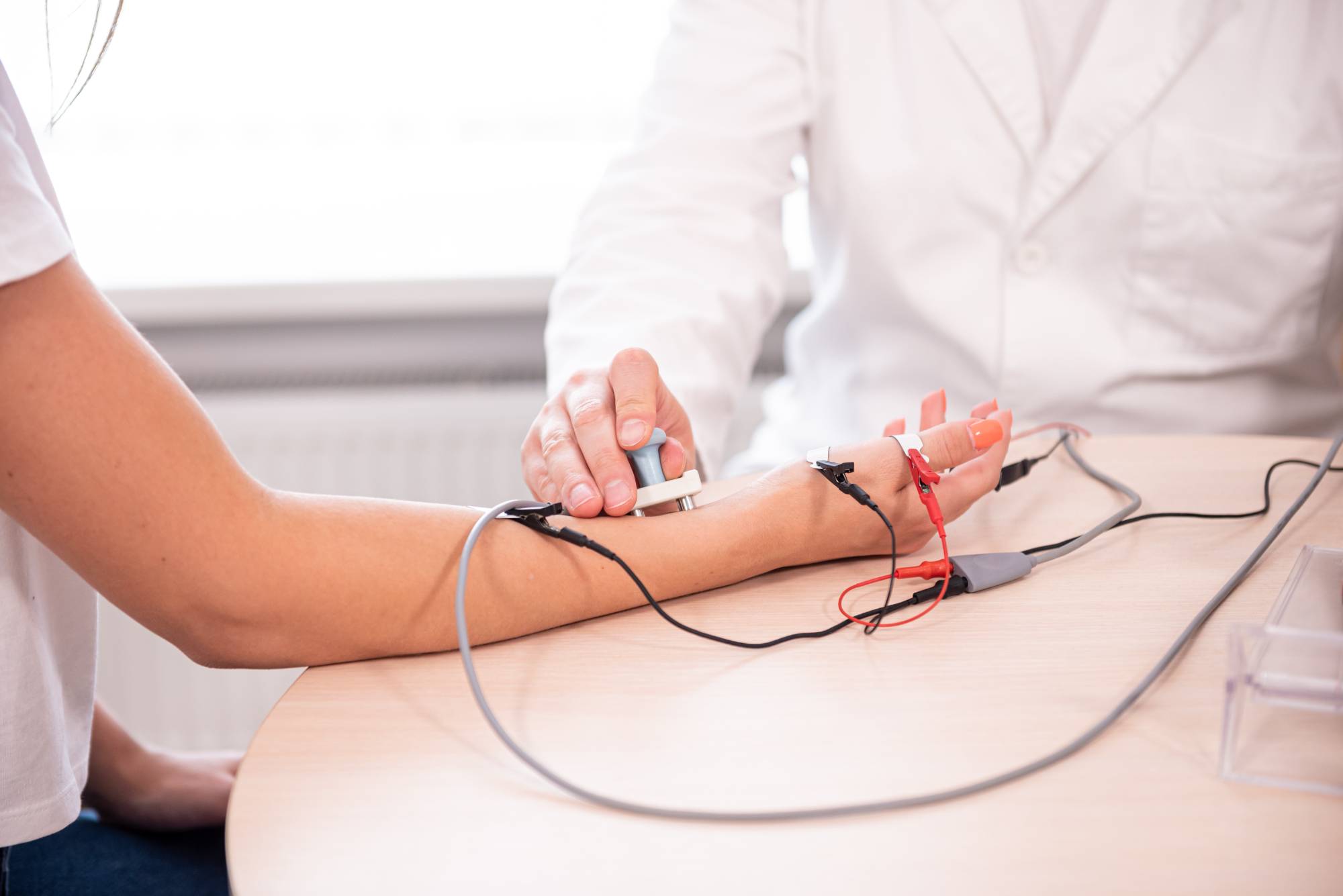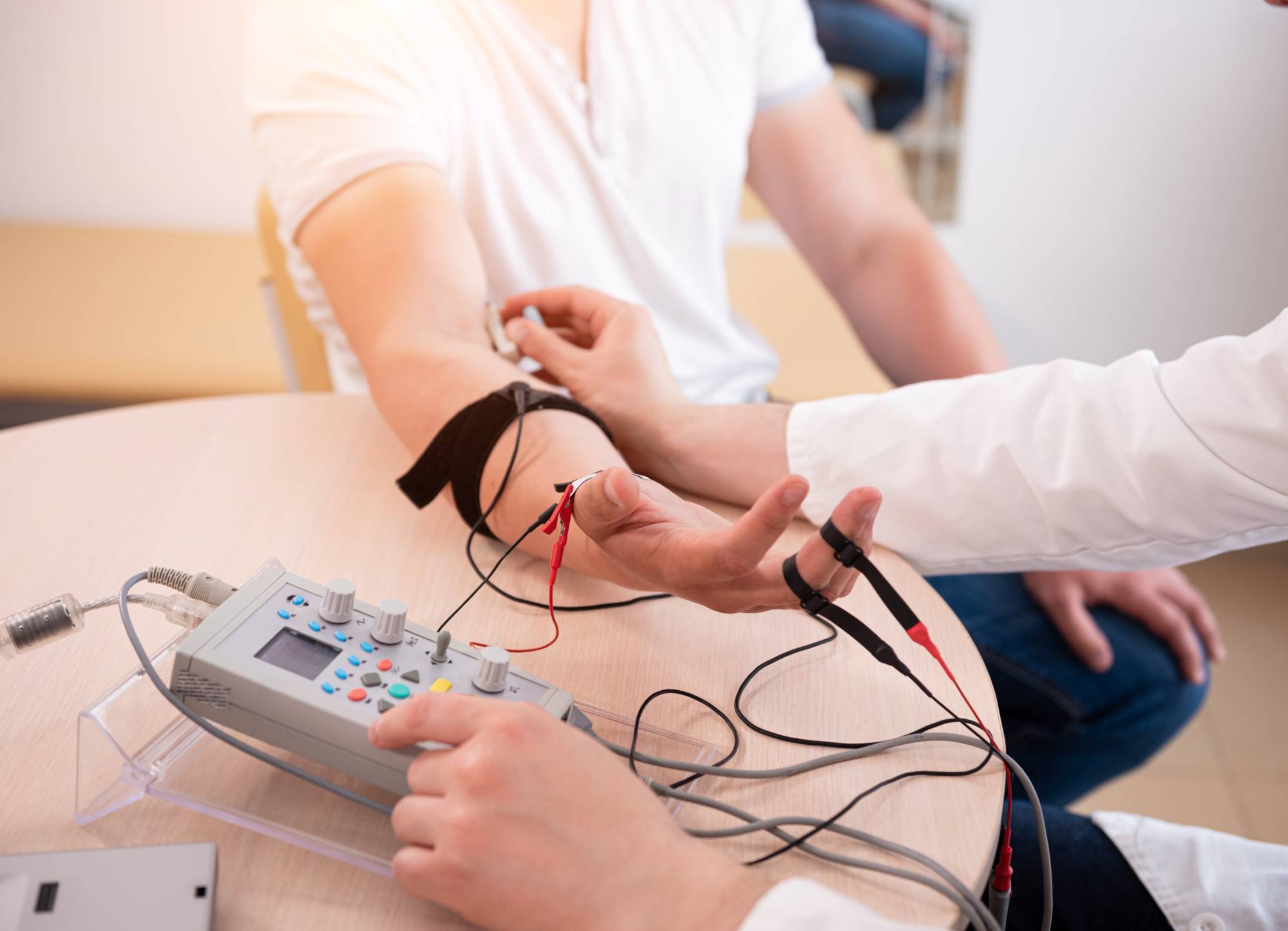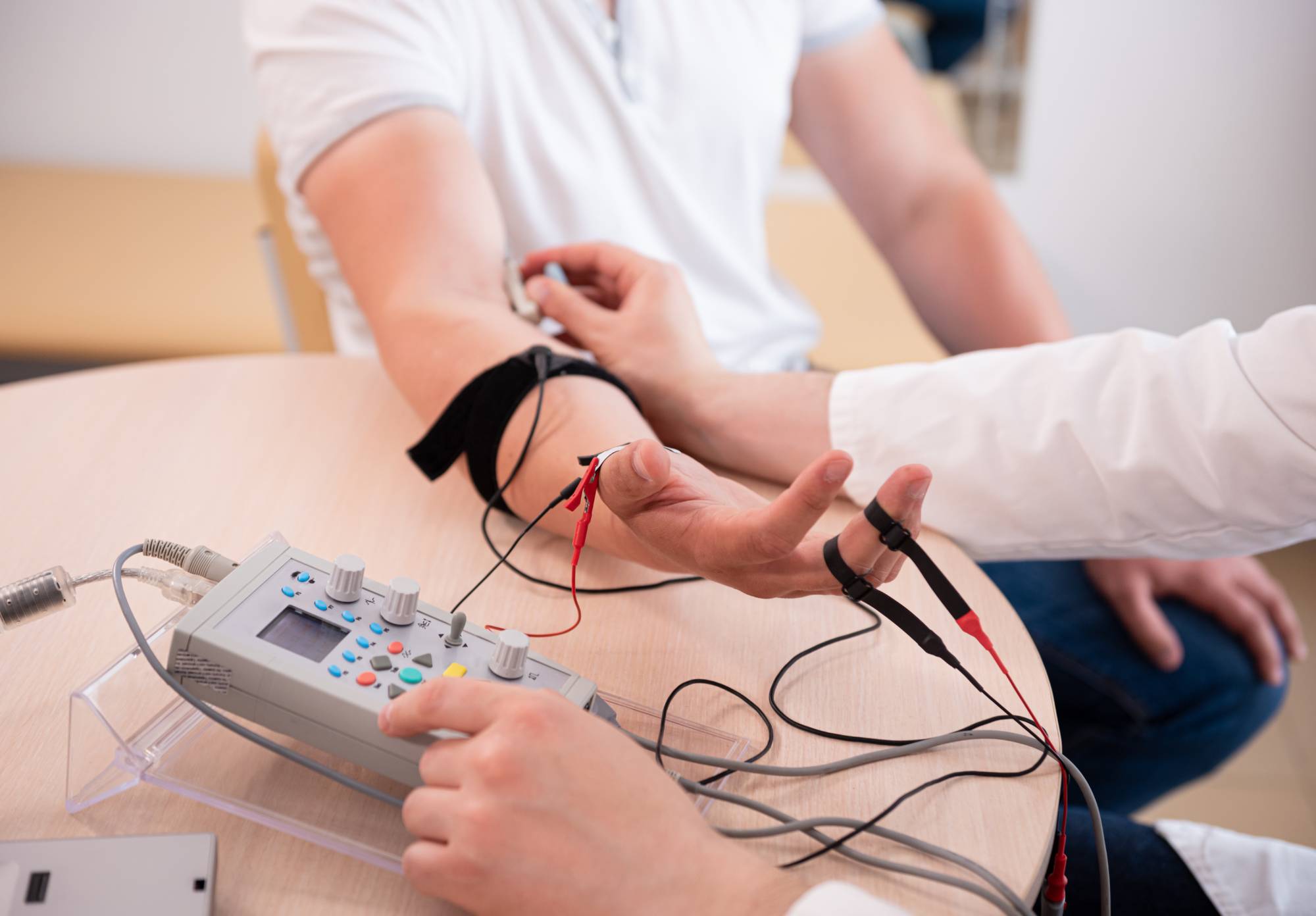Advanced electromyography testing that pinpoints exactly what’s causing your muscle weakness, numbness, or tingling.

Reviews

You’ve been dealing with unexplained muscle weakness, strange tingling, or that nagging numbness that won’t go away. Your primary doctor ran basic tests, but you still don’t have real answers.
EMG testing changes that. This diagnostic procedure measures the electrical activity in your muscles and nerves, giving us a clear picture of what’s actually happening inside your body.
Within minutes of your test, you’ll know if you’re dealing with nerve damage, muscle disorders, or conditions like carpal tunnel syndrome. No more guessing. No more wondering if it’s all in your head. Just concrete answers that lead to the right treatment plan for your specific situation.
We’ve been serving Northern New Jersey patients for years, specializing in complex nerve and muscle diagnostics. Our board-certified neurologists and pain management physicians have performed thousands of EMG tests right here in Ridgefield Park.
We use the latest electromyography equipment and nerve conduction study technology to ensure accurate results every time. Most importantly, we explain your results in plain English so you understand exactly what’s happening and what your options are moving forward.

First, we’ll review your symptoms and medical history to understand what areas need testing. The actual EMG test involves placing small electrodes on your skin and inserting thin needles into specific muscles to measure electrical activity.
The nerve conduction study portion uses mild electrical pulses to test how well your nerves transmit signals. Most patients describe it as similar to static electricity – brief and tolerable.
The entire process typically takes 30-60 minutes depending on how many areas we’re testing. You’ll get your results immediately, and we’ll walk through what everything means for your specific situation. No waiting weeks for answers or wondering what the technical terms actually mean.

Ready to get started?
Your EMG testing appointment includes both electromyography and nerve conduction studies – the complete diagnostic picture. We test multiple muscle groups and nerve pathways to identify exactly where problems are occurring.
You’ll receive detailed results interpretation from our specialists, not just raw data. We explain which nerves or muscles are affected, how severe the condition is, and what treatment options make sense for your lifestyle and goals.
Many patients discover their symptoms stem from treatable conditions like pinched nerves, carpal tunnel syndrome, or muscle inflammation rather than serious neurological diseases. Getting the right diagnosis means getting the right treatment from day one.

New York:
Florida:
Support